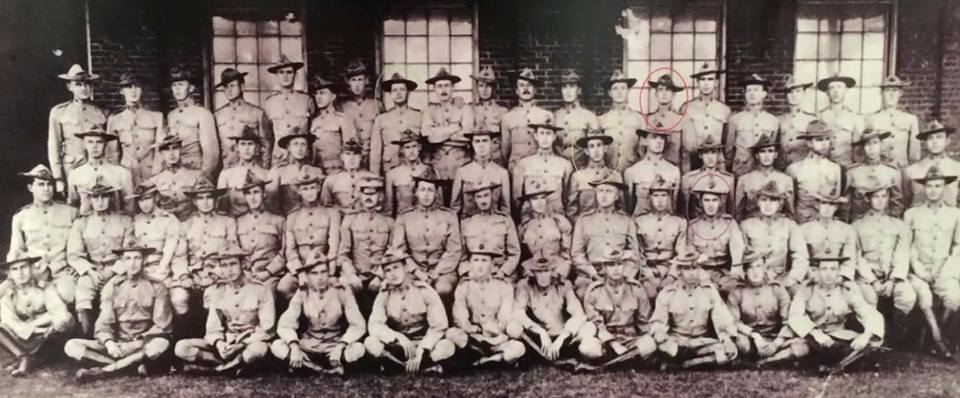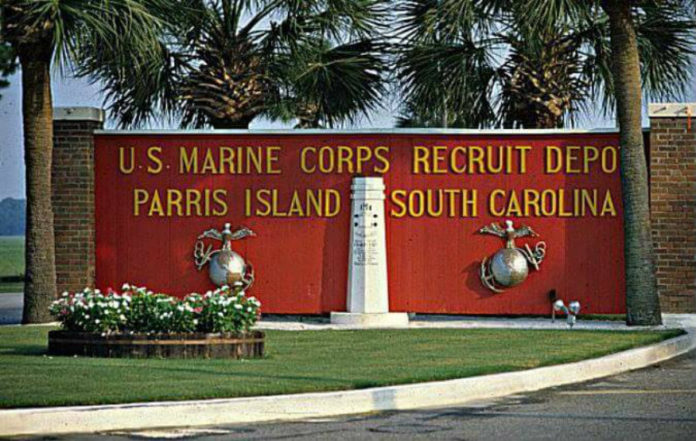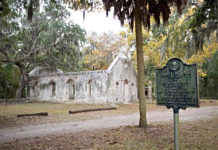Throughout every year, some 200,000 people visit Beaufort for one very popular event. To see their new Marine graduate from boot camp at Parris Island. Some 21,000 male recruits living east of the Mississippi River and female recruits from all over the United States report here each year to receive their initial training. That is now, but the history of Parris Island has it making Marines since 1915.
Parris Island and its 8,095 acres is one of the most important and most visited spots in the Beaufort area, but its history goes back much further.
According to the official Parris Island website, the historic timeline leading up to the official designation of Parris Island is as follows:
Nov. 2, 1861 – The first Marines in the area of Parris Island sailed into Port Royal Harbor, S.C., as members of detachments aboard various ships with the Atlantic Blockading Squadron. Commanding officer, Navy Capt. Samuel F. Du Pont, seized the area and it was used as an important base for the Union Navy throughout the Civil War.
Aug. 7, 1882 – An act of Congress authorized the establishment and construction of a coaling dock and naval storehouse at Port Royal Harbor. A select group of naval officers chose Parris Island as the site.
June 26, 1891 – To help protect the interests of the government during construction, a Marine guard consisting of one sergeant, two corporals and 10 privates were assigned to Port Royal, thus establishing the first Marine post on the island. Proper housing for the guard was slow in coming, with the Marines moving into barracks nearly two years after the post was created.
May 1, 1895 – 1st Lt. Clarence L.A. Ingate was the first officer assigned to command the Marine detachment at Port Royal. On Sept. 15, 1896, with the succession of command to 1st Lt. Henry C. Haines, the detachment became Marine Barracks, U.S. Naval Station, Port Royal, S.C.
Jan. 1, 1909 – The designation Marine Barracks became Marine Officers’ School, U.S. Naval Station, Port Royal, S.C., with the purpose of indoctrinating newly commissioned officers.
June 1, 1911 – A recruit depot began operation at Port Royal on a three-company basis as a secondary function of the Marine Officers’ School, after it had been postponed from its original startup date of November 1910.
Aug. 30, 1911 – October 1915 – The Marine Officers’ School and two recruit companies transferred to Norfolk, Va., after the Department of the Navy decided to use Port Royal for a disciplinary installation.
Oct. 25, 1915 – The recruit depot separated from the officers’ school and returned to Port Royal. It was established as Marine Barracks, Port Royal, S.C., with the principle mission of training enlisted Marine recruits. Three days later, the Navy transferred the land and buildings to the Marine Corps. And that is when it all officially started.

Recruit numbers were growing each year, except during the Great Depression, and at the time of the attack on Pearl Harbor, there were 2,869 recruits in four training battalions and 3,553 permanent personnel on Parris Island. Within two months, the numbers had grown to nearly 15,000 recruits in 13 battalions and over 5,000 supporting personnel.
Parris Island Today
Today, Parris Island graduates approximately 21,000 new Marines each year and the depot employs nearly 3,000 people in various capacities, including nearly 1,300 locals to make it all happen; while pumping an estimated $570 million into the local Beaufort economy.
The impact this tiny Lowcountry sea island has made on America, and on the world, is just amazing.
Beaufort is well known for its excellent relationships between the military and community, and Paris Island is no different.
The public is invited to visit Parris Island for a number of things. The public is welcome to play golf at the renowned Legends Golf Course on the Island and can also enjoy dining at the popular restaurant, Traditions. Visitors are also welcome to tour the Parris Island Museum, free of charge, to learn all about the history of the Marine Corps along with the history of nearby Port Royal, the beautiful seaside town that lies adjacent to the depot.
Article contributed by Gene Brancho










